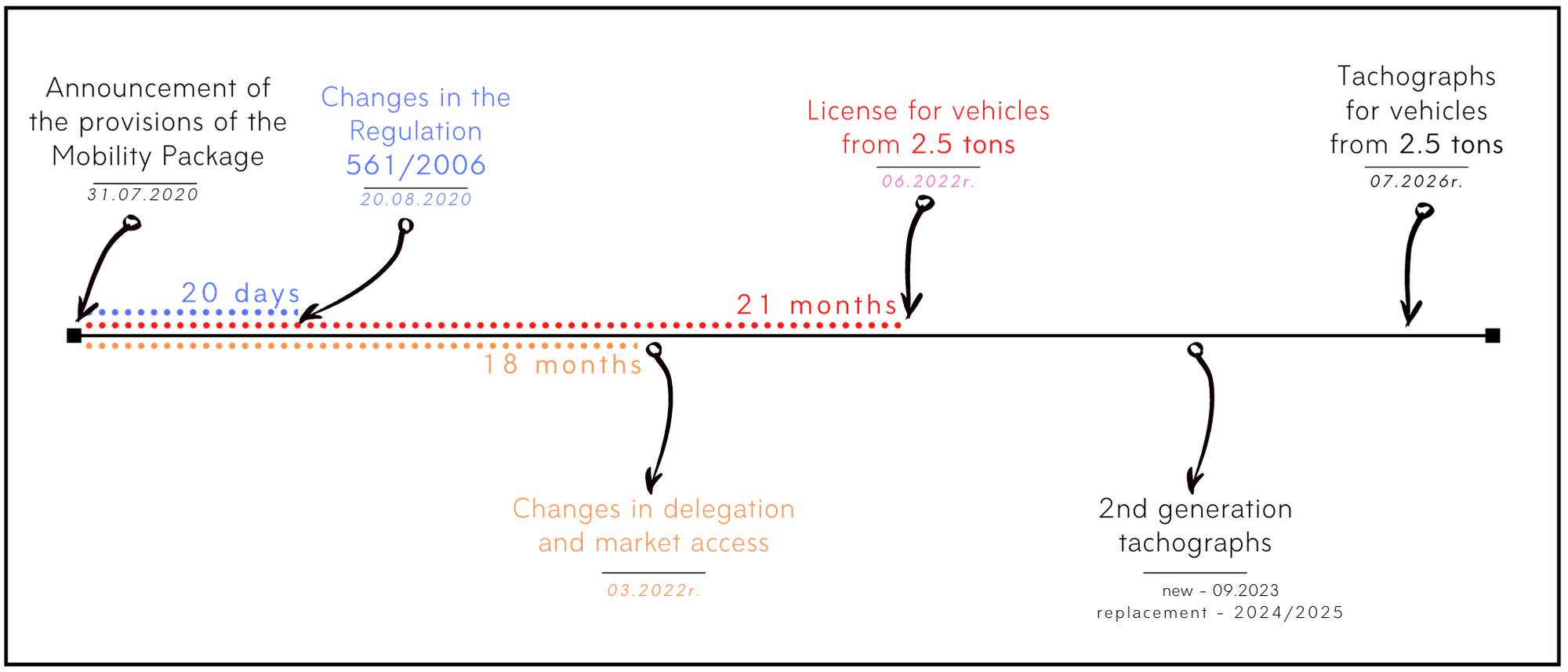Mobility Package - new challenges for the transport industry
The new requirements and several obligations resulting from the mobility package will hit the hardest companies that carry out international road transport with vans(up to 3.5t). See what new obligations will be imposed on carriers.
The 3 years old dispute is finally resolved - we already know the official dates of the new regulations governing international road transport becoming effective. The agreement was reached on July 8, 2020, where, after another stormy negotiation, the trilogue (consisting of the Council of the European Union, the European Parliament, and the European Commission) concluded a compromise and the draft of the mobility package was officially approved. The announcement of the mobility package in the Journal of the European Union took place on July 31, 2020 – people engaged in this industry will certainly remember this date for a long time. The implementation of the legal acts included in the package will be carried out in several stages over some time - some of them will become effective later this year and the rest in the consecutive years.
What is the mobility package about in a nutshell?
Its underlying idea is to regulate three important aspects:
- regulation relating to driving times and rest periods,
- posting of drivers and minimum wage,
- provide a clear and common framework for the road transport sector in the EU.
It is worth noting the fact that not all regulations apply directly to the road transport industry with vans up to 3.5 tons.
Below we present a graphic timeline that shows the upcoming changes at specific dates:






.png)